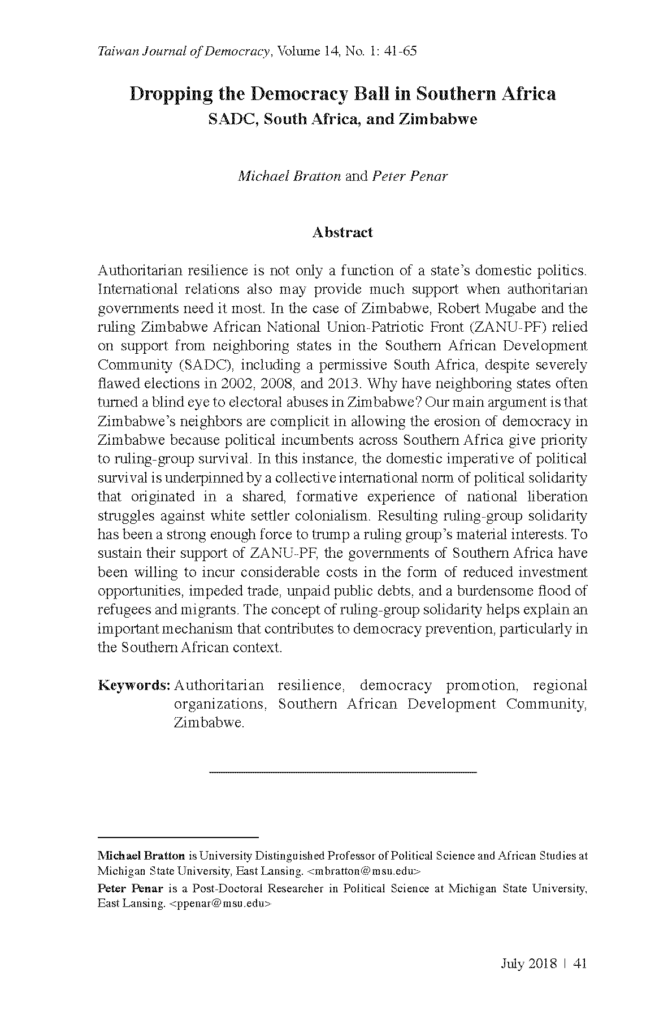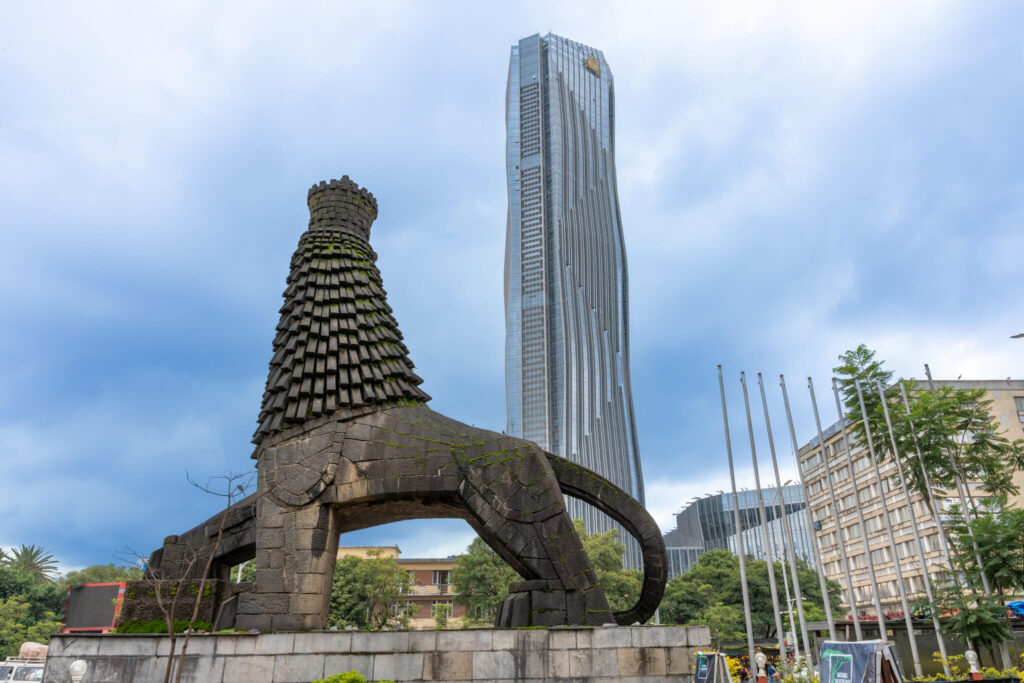Authoritarian resilience is not only a function of a state’s domestic politics. International relations also may provide much support when authoritarian governments need it most. In the case of Zimbabwe, Robert Mugabe and the ruling Zimbabwe African National Union-Patriotic Front (ZANU-PF) relied on support from neighboring states in the Southern African Development Community (SADC), including a permissive South Africa, despite severely flawed elections in 2002, 2008, and 2013. Why have neighboring states often turned a blind eye to electoral abuses in Zimbabwe? Our main argument is that Zimbabwe’s neighbors are complicit in allowing the erosion of democracy in Zimbabwe because political incumbents across Southern Africa give priority to ruling-group survival. In this instance, the domestic imperative of political survival is underpinned by a collective international norm of political solidarity that originated in a shared, formative experience of national liberation struggles against white settler colonialism. Resulting ruling-group solidarity has been a strong enough force to trump a ruling group’s material interests. To sustain their support of ZANU-PF, the governments of Southern Africa have been willing to incur considerable costs in the form of reduced investment opportunities, impeded trade, unpaid public debts, and a burdensome flood of refugees and migrants. The concept of ruling-group solidarity helps explain an important mechanism that contributes to democracy prevention, particularly in the Southern African context.
Dropping the Democracy Ball in Southern Africa: South Africa, SADC and Zimbabwe

Author(s)
Peter Penar, Michael Bratton
Venue
Taiwan Journal of Democracy 14.1
Year
2018
